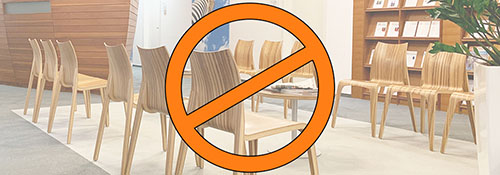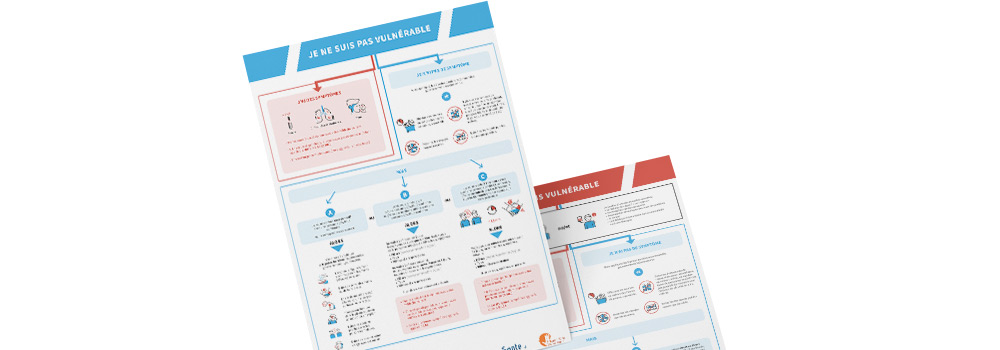COVID-19 (coronavirus SARS-CoV-2)
|
Law of July 17, 2020 on measures to combat the Covid-19 pandemic. |
Latest Updates of march 16, 2020The Health Department director reminds us that it is important not to panic This is why a complete FAQ, with questions and answers on the subject, has been put online on the government’s website. A hotline is set up since March 2, 2020 at A telephone information line for businesses has been set up at 42 39 39-445 by the the House of Entrepreneurship, to answer questions about part-time work or and the aid measures introduced by the government. The Ministry of the Economy has set up an information page (FAQ) for businesses. The ABBL provides an FAQ for banking services and specifies that the e-mail address abblsecretariat@abbl.lu is available in case you are unable to reach your usual contact person. The website www.covid19-psy.lu complements the official government website (www.covid-19.lu) and contains useful information on mental health in times of health crisis. It was created in collaboration with the Ministry of Health and partners from the psycho-social sector.
|
Related articles :
Covid-19 case definition
- A person with clinical signs of severe respiratory infection, with a fever above 38°C, who has travelled or stayed in an exposure risk area within 14 days before the date of onset of clinical signs of infection.
- A person showing clinical signs of severe respiratory infection within 14 next days of close contact with a confirmed case of Covid-19 while the case was symptomatic.
In case of positive symptoms
- Make your presence known to the health services.
- Contact the Health Inspectorate on +352 247 85650 or via 112 (outside office hours) who will direct you to the appropriate department for testing and quarantine.
- Do not go to the emergency room or to your doctor to avoid spreading the virus in waiting rooms.
Ministry of Health instructions (PDF files in French) |
Advices on the use of masks
Wearing a medical mask is one of the preventive measures to limit the spread of certain respiratory diseases, however, the use of a mask alone is insufficient to ensure an adequate level of protection, this measure must be combined with hand hygiene.
Mask Management
If medical masks are worn, proper use and disposal are essential to ensure their effectiveness and to avoid any increased risk of transmission associated with improper use and disposal of masks.
- carefully place the mask to cover the mouth and nose and fasten securely to minimize any gap between the face and the mask;
- avoid touching the mask during use;
- remove the mask using an appropriate technique (i.e. do not touch the front but remove the mask by holding it by the strap at the back);
- after removal or whenever a used mask is inadvertently touched, clean hands using an alcohol-based hand sanitizer or soap and water ;
- replace the mask with a new clean, dry mask as soon as it becomes wet;
- do not reuse single-use masks ;
- single-use masks should be discarded after each use and immediately after removal;
- Fabric masks (cotton / gauze) are not recommended under any circumstances.
|
Wearing medical masks when not indicated can create a false sense of security that can lead to neglect of other essential measures such as hand hygiene. |
Documents to display
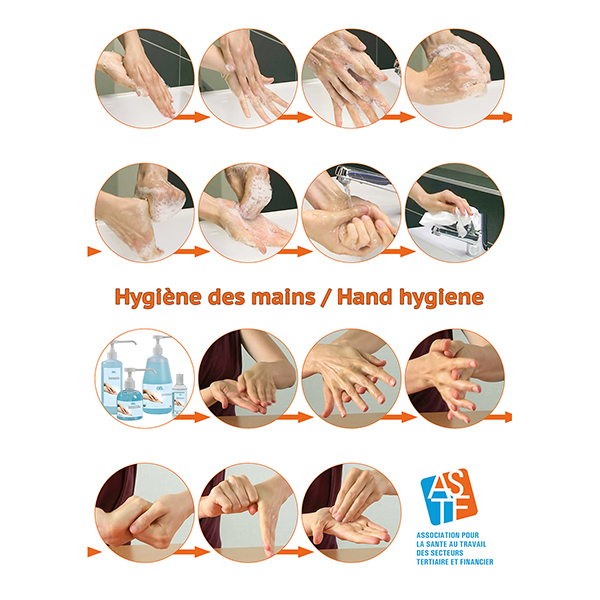 Hand wash and hydroalcoholic gel | 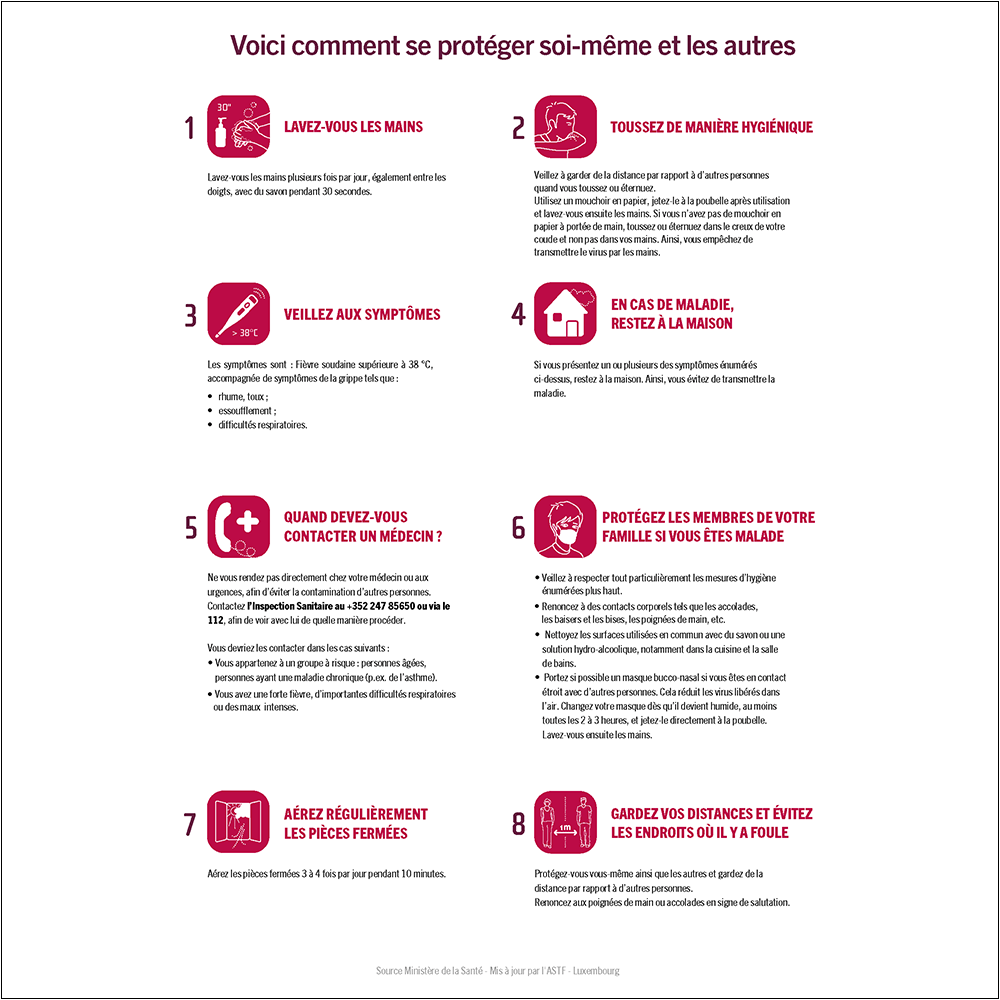 Protection instructions |
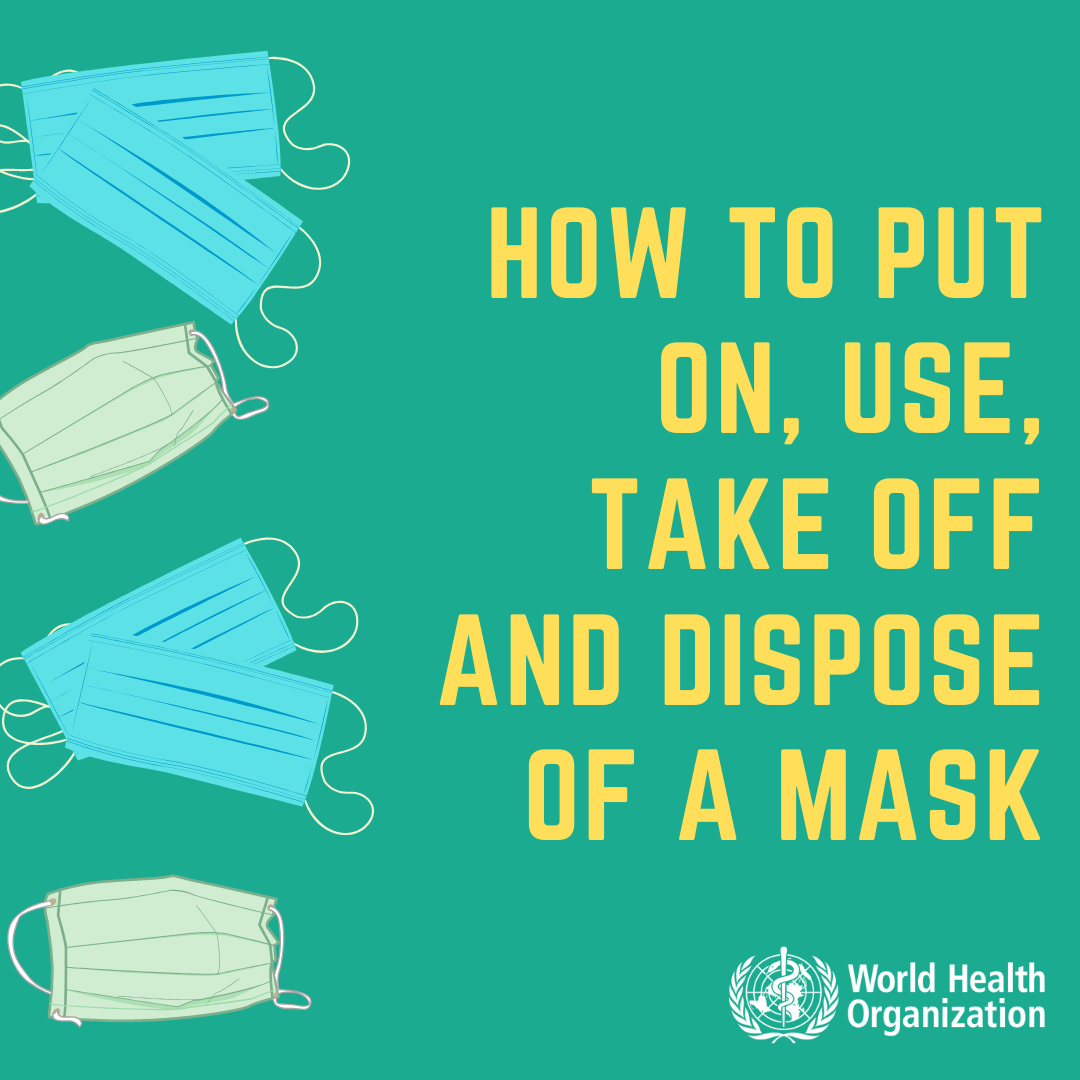 How to put on, use, take off, and dispose of a mask |
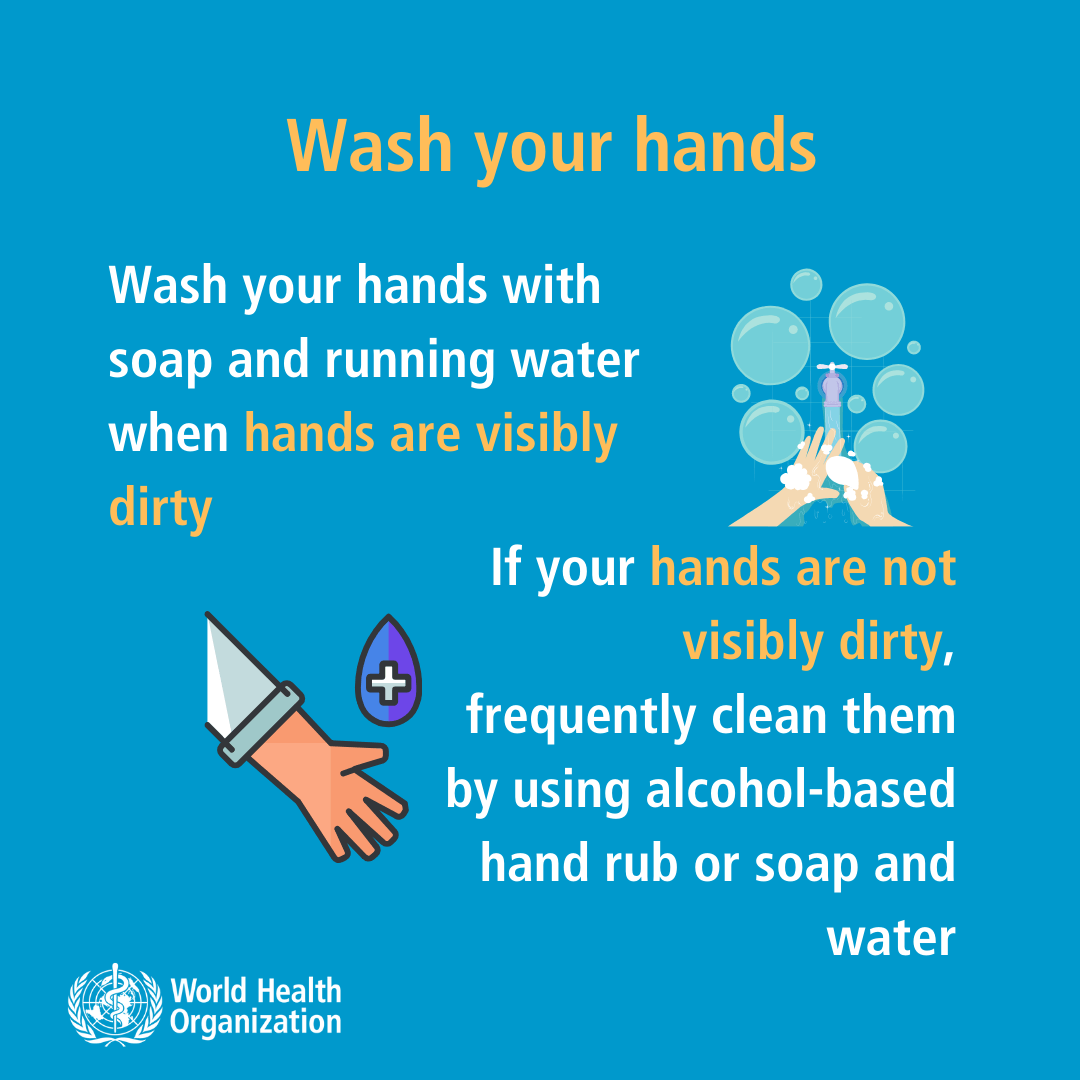 Protect yourself and others from getting sick |
Explanation videos
Coronavirus (COVID-19) FAQ
What is this new coronavirus (COVID-19) ?
In the past, two strains of coronavirus have caused severe epidemics: SRAS (severe acute respiratory syndrome) and MERS (Middle East respiratory syndrome).
In mid-December, an outbreak of pneumonia caused by a coronavirus family virus never before identified in humans broke out in Wuhan, a Chinese city of 11 million people, in Hubei province.
The epidemic is currently spreading but it is important not to panic.
The WHO, for its part, considers that an animal appears to be "the most likely primary source", with "limited human-to-human transmission through close contact". On Monday January 27th, it reclassified the threat as "high" on the International level.
|
On February 11th, The organization also mentioned that the first vaccine could be ready in 18 months. |
What are the COVID-19 (coronavirus SARS-CoV-2) symptoms?
Common signs of infection are respiratory symptoms, fever, cough, shortness of breath and difficulty breathing. In more severe cases, the infection can cause pneumonia.
The incubation period (the time between infection and the onset of symptoms) would range from 6 to 14 days, during which the individual is symptom-free.
A preventive visit to the doctor is therefore not indicated.
How dangerous is the COVID-19 (coronavirus SARS-CoV-2)?
The mortality rate of this virus is currently under 3%, however, it is still highly contagious, which is why some cities have been confined.
What can I do to avoid the spread of COVID-19 (coronavirus SARS-CoV-2)?
Standard recommendations to prevent the spread of infection include regular hand washing, covering the mouth and nose with a tissue when coughing and sneezing. Avoid close contact with anyone with symptoms of respiratory illness such as coughing and sneezing.
In case of symptoms of infection upon return from a risk area
- avoid contact and wear a facemask;
- use disposable tissues;
- wash hands regularly with soap and/or hydro-alcoholic solutions.
Do not visit your doctor or the emergency room to avoid risk of transmission.
Promptly contact the Inspection Sanitaire on +352 247 85650 or via 112.
The goal is to limit the spread of the virus as much as possible and not to bring suspected cases into contact with the rest of the population.
In Luxembourg, suspect cases will be handled by l'Inspection Sanitaire and Le Service National des Maladies Infectieuses will carry out clinical management. Samples will be taken in confinement at the CHL and sent to the LNS for testing.
Currently only symptomatic cases are detected in order not to saturate the infrastructures.
Also consult
- The ASTF "Pandemic" toolbox to protect the company in the event of a pandemic.
- The recommendations of the Luxembourg Ministry of Health (in french only).
- World Heath Organization recommendations and posters (aussi disponible en français).
Source: World Heath Organization - Ministère de la santé, Luxembourg

